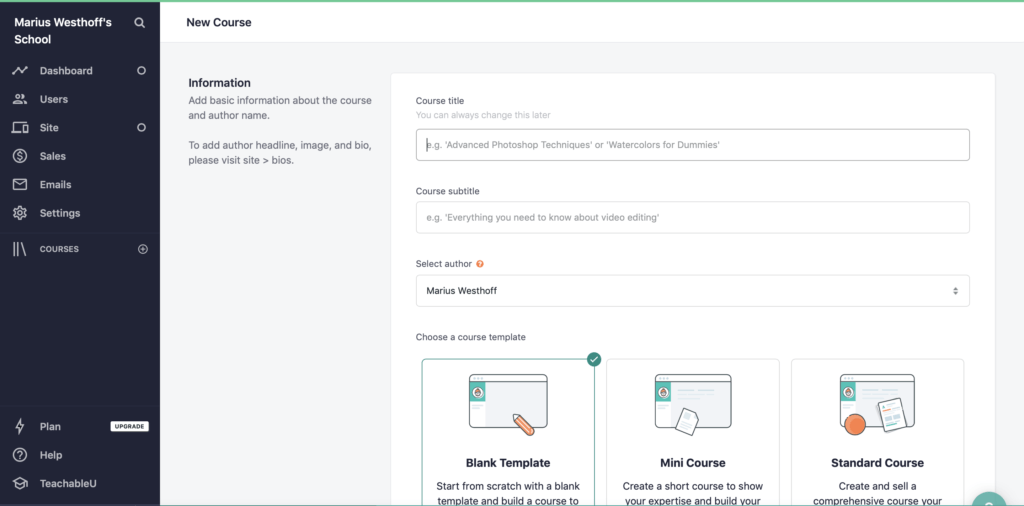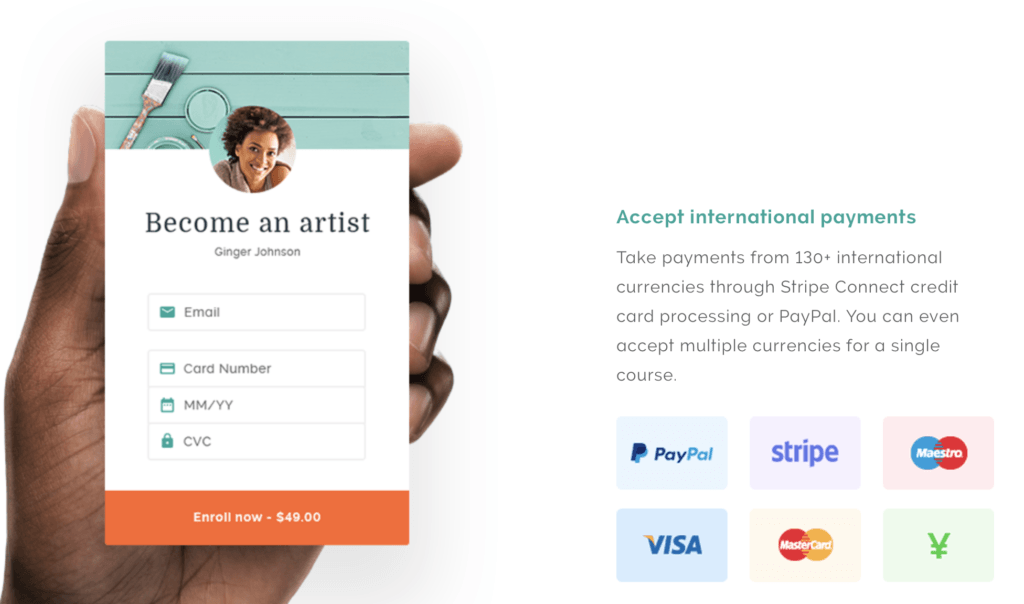Everything is teachable – Platform play in education

A closer look at the Airbnb of education
“teachable” is an online education platform that gives talented individuals (experts/ teachers) the chance to generate income by creating online courses for interested learners across the globe. Founded in 2013 by Ankur Nagpal, teachable currently has 23 million students across 257,000 courses, with 83,000 paying customers on the platform. The business model is based on subscription fees that experts pay to host courses (between $29 and $399 monthly, depending on the payment plan) as well as a commission on the tuition fee of the course (5% for the 29$ plan holder, 0% for the rest). Some examples of courses available on teachable include, “Beginning Gardener fundamentals”, “How to start blacksmithing”, “Building Dashboards with Google Sheets” or “Crush my mortgage”.
As the graphic below illustrates, teachable creates value at multiple levels:
- Learning Management System (LMS)
Teachable provides an easy-to-use LMS to experts, who want to create an online course themselves. The LMS includes functionalities such as video-inclusion/ picture inclusion, text/ assignments creation (both self-graded and manually graded incl. code-correction) etc.. The finished course is then hosted on the LMS and, after the expert has set the price-point for the course (typically ranging between US$50 – US$300), students can enroll into the program. Notable here is that each course becomes its own website with its own URL, so that the expert can market the course independently.
- Marketing support & discoverability of courses
Next to the provision of the LMS and the hosting of the courses website, teachable also helps experts market their courses by providing free courses and advice on how to best create SEO-optimized landing pages for the courses and how to market courses on facebook, google and other social media such as Instagram. Next to the individual marketing that experts do for their courses, teachable also make courses available on the discover.teachable.com. Along with the marketing advisory and discoverability, teachable also provides an analytics dashboard to its experts to track progress on student outcomes and enrollments.
- Payment platform & collection
Lastly, teachable provides experts with the ability to collect tuition fees for their courses, which are then distributed to the experts on a daily basis, after teachable cut their respective provision (0% or 5% depending on the paid plan chosen by the expert). Teachable allows for domestic and international payment collection.
For learners, the platform is a great opportunity to discover new courses and learn new, unconventional skills from experts. It differs from other education platforms such as EdX, coursera, Udemy etc. in a way that it focuses on life-skills by experts, rather than job-skills by universities.
Evaluating the platform on its scalability and sustainability, I am considering the five basic network properties – strength of network effects, network clustering, risk of intermediation, vulnerability to multi-homing as well as network bridging:
Strength of network effect
teachable’s platform is highly dependent on cross-side network effects – teachers and learners attract each other. The more experts provide quality courses on the platform, the more learners will come to study and vise versa. Direct network effects are rather weak, however, a learner may consider a course if a friend enrolled in it and a teacher may opt for teachable if other experts have recommended the platform to host courses.
Network Clustering
Unlike Uber or lyft that are fragmented into local clusters, teachable, like Airbnb, is a truly global digital network, where learners can interact with teachers from across the globe. There may, in the long-term, be local, non english-instruction, copy-cats of the model, however, given the small domestic market sizes (vs. global), those players may stay small.
Risk of Disintermediation
The company enjoys an extremely low risk of disintermediation as all the content and the learning experience is hosted on their LMS. It is therefore not possible for an expert to disintermediate and provide the same learning experience to a learner without using the platform.
Vulnerability to multi-homing
There is, technically, a risk that experts host their programs on both teachable as well as udemy or other online learning platforms, however, given the fact that it takes a considerable amount of time to create a course on teachable’s LMS, shifting costs are fairly high. Similarly, for a learner, once enrolled in a course, shifting for the same course is not an option.
Network Bridging
Network bridging does not apply to teachable. While it is connected to the major payment gateways and has integrations with Google Analytics and other marketing suites, it doesn’t benefit greatly from other platforms.
Overall, given the above analysis, the platform seems to enjoy strong network properties, indicating sustainability and scale. This is potentially the reason why it was acquired in March 2020 for a rumored amount of approximately $250m (its last disclosed valuation of 2018 was $134m).
Sources:
teachable.com
techcrunch
crunchbase
interactions with founder







Excellent article Marius! I can’t wait to start engaging with this course – I wonder if it can compete with our new online classes haha!
I agree that the key network benefits are in cross-side. Elaborating on your point further, I wonder if the platform can be further strengthened through building functionality to increase same-side benefits? As you said – super teaches showing and sharing other teachers how to improve their courses, super students helping one another out. Maybe it can become a mini-social media platform for people interesting in learning 🙂
Thanks a lot Chris!
I agree – there could be much more involvement of the students in actually grading/ providing feedback and the company could build communities around different skills that are taught – e.g. a community for the home gardeners, a community for the blacksmiths etc. …
As technology increasingly augments – and replaces – human work, the importance of affordable and relevant education will become increasingly important. I think teachable has the potential to help companies quickly retrain their work forces while reinforcing a culture of sharing and learning. I think they should consider making a corporate version for companies where employees are incentivized to post courses teaching others skills in areas that area top priority for the company. For example, a coder in one department could teach a course to people whose jobs are being replaced to help them find a new role in the company. A product like this would be very sticky for companies because it would contain significant amounts of company knowledge, and integrating a education system into their existing systems would take significant effort. Once they’re bought in, they’d stay for a long time.
Agree, the entire corporate market is very interesting and given the large content catalogue of teachable, they may have a significant advantage over other companies that create courses themselves and can only provide a smaller content catalogue – having said that, so far, teachable has predominantly focused on helping experts – it’s been a very expert-driven platform and the shift to being a B2C or B2B, consumer facing brand will only come with time.